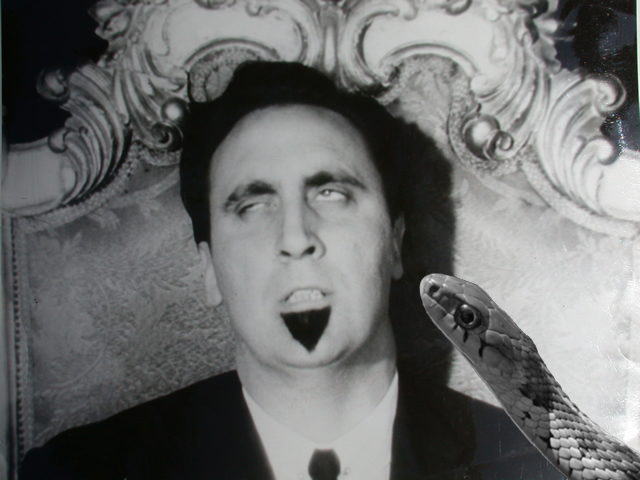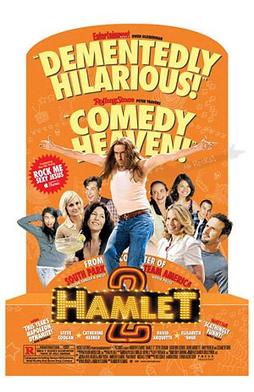 Once again, Brad and I have teamed up for another Blog-Off, so be sure to check out Brad's review/essay when you're finished here.
Once again, Brad and I have teamed up for another Blog-Off, so be sure to check out Brad's review/essay when you're finished here.Christopher Morris' Four Lions initially caught my attention for two reasons. The more innocuous reason being that it is the first film distributed (Stateside, at least) by the Alamo Drafthouse's new distribution arm, Drafthouse Films. The second, potentially nocuous reason is that it is a farcical British comedy about a group of inept would-be London suicide bombers. I don't know how this film was received in its native England, but it's the kind of movie that would have generated plenty of controversy, had it gotten a little more mainstream attention that is.
Before getting into any kind of discussion about the merits of making such a comedy, I just want to say a few things about the movie itself. Overall, I think Four Lions is a great film. I think it primarily succeeds in its ability to handle tone, particularly its ability to gradually shift from a light-hearted farce to a grim dark comedy over 97 minutes. For the first 30 or so minutes, Four Lions is a black comedy almost in theory only. The suicide bombing aspect could have been easily switched out for any other harebrained scheme, and the movie would have only lost its nominal edginess. It is a fleet, fast-paced, British comedy, reminiscent of the excellent In the Loop. But just as it lulls the audience into almost forgetting that they are watching a group of potential suicide bombers, the movie begins introducing darker elements that proceed to progressively ground the movie in more realism. Its near-slapstick buffoonery slowly gives way to a grim, dark, and utterly audacious black comedy by the film's end. It's wonderfully executed, at times laugh out loud funny, and generally a bold success.
That being said, I would be remiss if I didn't at least try and address the issue of making a comedy about suicide bombers. Should a movie be made about suicide bombers? I'm of the mind that nothing is categorically off limits for comedy. Just, the more sensitive the subject, the more onus the filmmakers bear for justifying using such a topic as a basis for humor. Charlie Chaplin's The Great Dictator, his 1940 lampooning of Hitler, gets referenced lot when discussing Four Lions as an example of a film that uses humor to address serious social and political topics. Generally, simply being funny can be enough for me, but the addition of some kind of social or personal insight will all but earn my seal of approval. I'm not terribly sensitive about a lot of topics, but it certainly is not a given that people can pull this off (Louis C.K., one of my favorite comedians, tends to walk this line but not always necessarily on the right side of it, in my opinion).
Does Four Lions justify its existence as a comedy regarding suicide bombers? I would argue yes, with one caveat. It is funny and ultimately treats its subject matter with appropriate reverence by the end. What it does not do, that some viewers may wish it would, is really explore more in-depth facets of suicide bombing. Whether that be what drives an individual to attempt such an act, what underlying social ills give rise to a culture featuring such behavior, or what the human consequences of suicide bombing actually are, Four Lions doesn't concern itself with delving too deeply into these issues. This may earn it some accusations of simple sensationalism, but personally I would disagree. It earns its place by virtue of being funny enough, while fully acknowledging what it's dealing with as the film progresses. I don't think it provides any scathing personal or social insight into suicide bombing, though. Some have argued that the movie is saying that suicide bombing is born of a dangerous mix of misguided passion and blatant idiocy, but within the insular world of the movie, almost everyone is an idiot, suicide bomber or not.
In writing about this, I realized that Four Lions prompted a lot more thoughts than I initially thought it would. Rather than make this any longer than it already is, I'll just say that Four Lions is destined to be a cult classic. It seems to have avoided a fair amount of controversy by virtue of flying more or less under the radar, but it's the rare film that seemed to have avoided its potential detractors and landed in the laps of its intended audience. An audience that I can only imagine will grow via word-of-mouth over time.
[NOTE: In writing this, I may have googled some very suspicious phrases. If I happen to disappear in the near future, please inform the US Federal Government of my undying patriotism.]

.jpg)

















